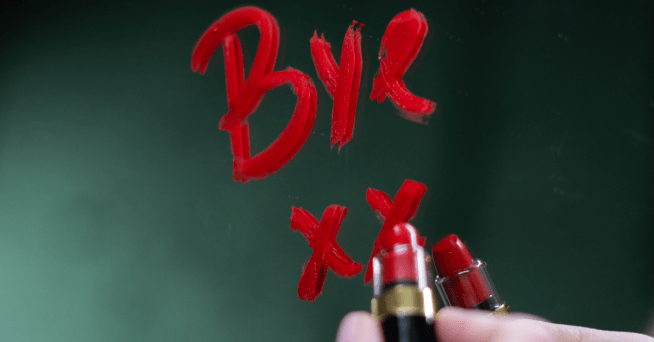We all have our own ideas of the “perfect family”. Maybe it’s the Cleavers or the Bradys or the Father Knows Best family (am I aging myself here?).
The reality of it is, most of our families don’t measure up to those impossible standards.
Family can be difficult, we all get that. Some family relationships take a lot of work, or a lot of gritting your teeth, or a lot of self-care to navigate. But sometimes you have a family relationship that is beyond repair.
Maybe it’s a parent with severe alcoholism or a sibling with mental illness. Maybe it’s a family member who has done something so awful, there’s no coming back from that. What do you do then?
Sometimes your best option is to sever the relationship and divorce your family member.
For many of us, this can be one of the hardest decisions we ever make. It comes with judgment from all sides.
You may hear things like “It’s terrible that your father abused you, but I’m sure he loves you in his own way”, or “No matter what your mom did, she’s old now and you owe it to her to help her out”, or “Your daughter has a drug problem, but you’re still her mom”.
Here’s the thing: no one will take care of you in these abusive family relationships.
You need to take care of yourself, and sometimes taking care of yourself means removing yourself from that situation. You don’t have to forgive huge horrible things that came in your past and you certainly don’t have to put up with ongoing abuse.
You deserve to live your best life, even if it means cutting people off.
I know it sounds simple, but it is not. Family bonds are usually our oldest and strongest bonds. They are also nuanced and complicated.
Here are some things to consider before divorcing a family member:
- Is the family member abusive in all your interactions? Or is abuse brought on by triggers such as drugs or alcohol? Are there ways to maintain some level of the relationship while avoiding exposing yourself to abuse?
- Are you willing or able to forgive past abuse? Or do you find yourself angry, hurt, or reliving past deeds whenever you see the person?
- Does the person take responsibility for their behavior? Have they asked for forgiveness, changed in some tangible way, or made amends?
- How will this impact other members of your immediate family? For example, do you feel like another person will feel forced to choose between you and your estranged family member? Does severing the relationship mean your kids won’t see a grandparent or aunt, and if so, are you OK with that?
- When the person dies, what do you think you will feel? Regret that you stopped having a relationship with that person? Relief? Or will you mourn that you didn’t have a different family member?
- If you never see or talk to the person again, will you be OK with it?
- Do you have a strong support system to get you through this? Sometimes friends can be the family you need.
Only you can decide if ending the relationship is best for you. If you make the difficult decision to end the relationship, be sure to take care of yourself.
And remember, it’s totally OK to not respond to calls, emails, or other attempts from the family member to engage with you. Once you’ve told them it’s over, you have no obligation to engage.
It’s OK to change the subject and agree to disagree with well-meaning friends or family that want to tell you why you should maintain the relationship.
If you feel like the person poses a current danger to you, contact your local family violence agency, court, or an attorney to determine your options for protective orders (restraining orders) if appropriate.
Most importantly, allow yourself space and time to mourn the relationship.
Practice self-care. Cry if you need to. Write in a journal or write a letter to the person (even if you don’t send it) sharing your feelings. Talk to trusted family or friends who will understand.
Give yourself credit for taking care of yourself in a way that works best for you.
It can be helpful to have a neutral person talk this through, offer suggestions, and reinforce that you deserve to live a life free of abuse. If the relationship or end of the relationship is making you consider self-harm, or interfering with your daily activities, contact your local mental health agency or a therapist immediately.
Remember, you were born into your family — the decision to stay is completely up to you.
 Rose Bak is a freelance writer, author and yoga teacher who lives in Portland, Oregon with her family and special needs dogs. As a dedicated multipotentialite, she writes on a variety of topics including self-care, aging, inspiration, business, and pop culture. She is also a published author of romantic fiction. In addition to writing, she teaches accessible yoga and sings. Sadly, she has absolutely no musical talent so she’s forced to mostly sing in the shower. For more of Rose’s work, visit her website at rosebakenterprises.com or follow her on social media @AuthorRoseBak.
Rose Bak is a freelance writer, author and yoga teacher who lives in Portland, Oregon with her family and special needs dogs. As a dedicated multipotentialite, she writes on a variety of topics including self-care, aging, inspiration, business, and pop culture. She is also a published author of romantic fiction. In addition to writing, she teaches accessible yoga and sings. Sadly, she has absolutely no musical talent so she’s forced to mostly sing in the shower. For more of Rose’s work, visit her website at rosebakenterprises.com or follow her on social media @AuthorRoseBak.
Image courtesy of cottonbro.












